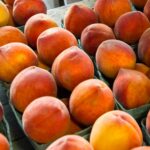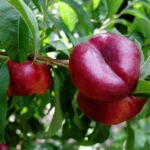Opinion: new NZKGI president sends global Psa message
By New Zealand Kiwifruit Growers Incorporated's (NZKGI) newly-elected president Neil Trebilco
 Before leaving his role as NZKGI president in December, Peter Ombler said New Zealand's kiwifruit industry was hopeful despite the challenges of vine disease Psa. Now Neil Trebilco has taken the reins and recounts what the country has been through, how other kiwifruit-producing countries will likely relate and what can be learned in 2012.
Before leaving his role as NZKGI president in December, Peter Ombler said New Zealand's kiwifruit industry was hopeful despite the challenges of vine disease Psa. Now Neil Trebilco has taken the reins and recounts what the country has been through, how other kiwifruit-producing countries will likely relate and what can be learned in 2012.
Firstly, as the new president of New Zealand Kiwifruit Growers Inc, I would like to send Season’s Greetings to our fellow kiwifruit growers both in New Zealand (NZ) and to our kiwifruit friends in Chile, Italy, France, Spain, Portugal, Greece, U.S.A, Korea, Japan, Australia and China. I wish you all the very best for the New Year.
Many of you will know that the kiwifruit industry in NZ has gone through a difficult time in this last year due to the finding and subsequent spread of the vine disease Pseudomonas syringae pv. Actinidiae (Psa), otherwise known as Batteriosi. Psa was confirmed as being present on an orchard in Te Puke on Nov. 5, 2010. Approximately 45% of NZ’s kiwifruit production is grown in Te Puke, which is located in the middle of the province of Bay of Plenty, which produces about 85% of NZ's kiwifruit.
The discovery of the Psa in the middle of our most productive area was devastating news - I can remember my stomach churning when first hearing that Psa had been confirmed. We were only too well aware of the experiences of the kiwifruit industry in Italy with Psa, or or Batteriosi as it is known there. For many kiwifruit orchardists in NZ, kiwifruit is their main source and in some cases, sole source, of income.
Since the discovery of Psa here, we have been learning about the disease at a rapid rate. Initial genetic/DNA testing didn’t discern between different types, known as haplotypes, of Psa. Through random testing around NZ, Psa was detected as being widespread throughout the country. As the genetic testing was refined, it was established that we had both a low virulence haplotype (Psa-LV) and a high virulence haplotype (Psa-V). At that stage Psa-V was confined to just a few orchards in Te Puke.
Those first few Psa-V positive orchards were removed to try to contain the spread of the disease. Unfortunately we were merely chasing symptoms as the Psa bacterium was being moved from orchard to orchard by wind, or mechanical contamination, or infected plant material. Spates of new infections would show up after periods of wind and rain, both of which NZ has a lot of. We learnt new terms like 'PCR' (Polymerase Chain Reaction) used in DNA analysis, applied new sprays such as protectants, disinfectants and elicitors, adopted new orchard hygiene regimes and changed to new pruning programmes. It has also emerged that Psa is probably present in all the major kiwifruit producing countries, with the possible exception of the U.S.A.
What has become very evident is that different varieties of kiwifruit have different tolerances to Psa. For example Gold (Hort16A) kiwifruit is much more susceptible than Green (Hayward) kiwifruit. With kiwifruit having a very wide genetic base to breed new varieties from, this differing tolerance to Psa gives hope that Psa–V tolerant varieties will be discovered in the future. Already hopes are held for new Zespri green and gold varieties and we await fresh evidence of the tolerance of these new varieties over the next month or so.
As I write this we are experiencing long rainy periods during our summer and we already know that extended periods of leaf wetness almost inevitably result in an increased spread of Psa, both within orchards and to previously uninfected orchards.
The combination of the discovery of Psa, troubled worldwide market conditions, plus unfavorable exchange rates has made this a difficult year for kiwifruit orchardists. However we do know that kiwifruit is a great product. At this year’s International Kiwifruit Organization annual conference held in New Zealand, one of the themes was the benefits of kiwifruit nutrition, especially its positive effects on the human gastro-intestinal tract. Also at the conference the participating countries - Chile, Italy, France, Spain, Korea, U.S.A and NZ - agreed to cooperate on the research into solutions for Psa.
So while this has not been an auspicious year for NZ kiwifruit growers, I do hold great hopes for the future. This coming year we will learn more about how to deal with Psa. It is likely that production will be affected, especially for the Zespri Gold variety however, in following years I expect that volumes will rebuild as new varieties and solutions are found. NZ growers are if anything, creative, resourceful and resilient.
Related story: NZ kiwifruit growers could cut back gold variety vines in Te Puke











































